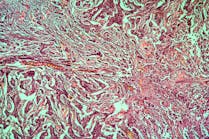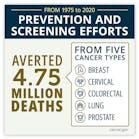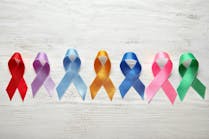Younger adults with colon cancer tend to be diagnosed at a later stage and have more aggressive types of tumors. Additionally, young patients living with colorectal cancer have long-term, adverse consequences on their lives, which are different from the impact the disease has on older adults, according to two studies being presented at the American College of Surgeons (ACS) Clinical Congress 2024 in San Francisco, California.
To understand why colon cancer is affecting more young adults, researchers investigated sociodemographic factors and the tumor biology associated with this disease in younger adults. Using the National Cancer Data Base, a large hospital-based database that captures about three-quarters of all cancers diagnosed in the U.S., researchers compared two groups: younger adults (18-44 years) and older adults (45 years and older) diagnosed with colon cancer between 2015 and 2021.
There were 318,951 new cases of colon cancer diagnosed in Commission on Cancer (CoC) hospitals from 2015 to 2021. Of those, 16,974 (5.6%) were younger adults (18-44 years) and 301,977 (94.4%) were older adults. After comparing age groups, the analysis showed that a higher proportion of young adults had later-stage disease with more aggressive types of tumors. Additionally, a higher proportion of young adults with colon cancer were non-Hispanic Black (16.9%), as compared to the proportion of non-Hispanic Black Americans that make up the general U.S. population (12.1%).
To better understand the experiences of young adults with colorectal cancer, the research team conducted interviews with 35 patients who were diagnosed with colorectal cancer before the age of 50. Participants were recruited from three academic medical centers where they were receiving cancer treatment. Participants were asked open-ended questions about the influence of a cancer diagnosis on their lives, daily challenges, and concerns about the future.
Patients were most concerned about four areas of health and well-being: physical health, mental health, family planning, and career. Specifically, their responses revealed that infertility, anxiety, and uncertainty surrounding the diagnosis and long-term survival, and not being able to build assets, pursue higher education, or establish job security mattered most. Additionally, these concerns were not gender specific. Career, physical health, financial security, mental health, fertility, and family planning were equally important to both men and women.
The study authors hope this understanding of patient concerns will spur additional conversations about the comprehensive needs of younger patients and spark interest in creating programs such as fertility counseling, financial support, and mental health counseling that address their unique challenges.
*Note: “Colon cancer” refers to cancers of the colon, while “colorectal cancer” encompasses both colon and rectal cancers. Dr. Chan’s study analyzed colon cancer while Dr. Savitch’s study analyzed colorectal cancer.





